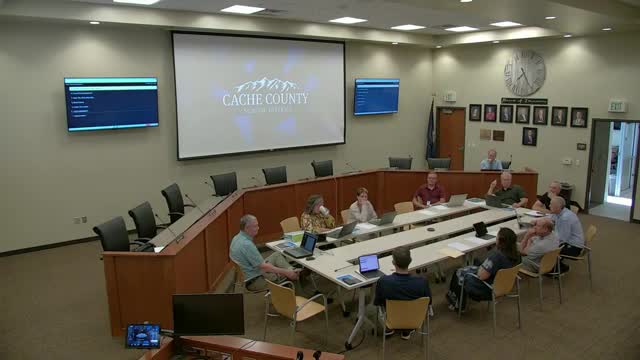School Board Faces Tough Decisions on Voucher System
August 02, 2024 | Cache County School District, Utah School Boards, Utah
This article was created by AI summarizing key points discussed. AI makes mistakes, so for full details and context, please refer to the video of the full meeting. Please report any errors so we can fix them. Report an error »

During a recent government meeting, discussions centered on the future of school infrastructure and the implications of a new voucher system for education.
Scott, a board member, highlighted the need for a strategic approach to replacing aging school buildings, noting that while the district has focused on accommodating growth by adding new schools, it is now at a plateau. He emphasized the importance of planning for the replacement of older facilities as part of a long-term vision for the district.
The meeting also addressed the ongoing fraud risk assessment, with board members reminded of the necessity for online training. Questions arose regarding the frequency of this training, with members uncertain if it was required annually or every few years.
A significant portion of the discussion revolved around the Utah Fitzgerald scholarship, commonly referred to as the voucher system. This program allows families to opt out of public education in exchange for $8,000, but it comes with the stipulation that they forfeit all public education requirements, including testing. As the funding for this program has recently become available, the district is beginning to receive inquiries from families wishing to enroll their children in public schools while utilizing these vouchers.
Superintendent McKee expressed caution regarding the district's potential role as a vendor for these voucher students, citing unclear legal language and the potential impact on testing obligations and teacher responsibilities. He indicated that while the district is not required to participate, it is considering a middle ground by offering online courses through its existing platform, Cash Buzz, to families who have accepted vouchers. This approach aims to provide educational opportunities without triggering the complexities associated with traditional enrollment.
The board's deliberations reflect a broader hesitance among districts statewide, with many opting to proceed cautiously as they navigate the implications of the new voucher system.
Scott, a board member, highlighted the need for a strategic approach to replacing aging school buildings, noting that while the district has focused on accommodating growth by adding new schools, it is now at a plateau. He emphasized the importance of planning for the replacement of older facilities as part of a long-term vision for the district.
The meeting also addressed the ongoing fraud risk assessment, with board members reminded of the necessity for online training. Questions arose regarding the frequency of this training, with members uncertain if it was required annually or every few years.
A significant portion of the discussion revolved around the Utah Fitzgerald scholarship, commonly referred to as the voucher system. This program allows families to opt out of public education in exchange for $8,000, but it comes with the stipulation that they forfeit all public education requirements, including testing. As the funding for this program has recently become available, the district is beginning to receive inquiries from families wishing to enroll their children in public schools while utilizing these vouchers.
Superintendent McKee expressed caution regarding the district's potential role as a vendor for these voucher students, citing unclear legal language and the potential impact on testing obligations and teacher responsibilities. He indicated that while the district is not required to participate, it is considering a middle ground by offering online courses through its existing platform, Cash Buzz, to families who have accepted vouchers. This approach aims to provide educational opportunities without triggering the complexities associated with traditional enrollment.
The board's deliberations reflect a broader hesitance among districts statewide, with many opting to proceed cautiously as they navigate the implications of the new voucher system.
Don't Miss a Word: See the Full Meeting!
Go beyond summaries. Unlock every video, transcript, and key insight with a Founder Membership.
✓
Get instant access to full meeting videos
✓
Search and clip any phrase from complete transcripts
✓
Receive AI-powered summaries & custom alerts
✓
Enjoy lifetime, unrestricted access to government data
30-day money-back guarantee

